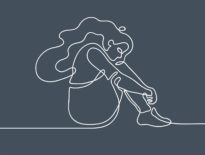Related to the subject of boredom, Blaise Pascal wrote: “All of humanity’s problems stem from man’s inability to sit quietly in a room alone.”
The holiday period seems to be characterized, for some young people, by a massive, lasting boredom. At least this is the conclusion one can draw from the comments on the internet and in real life, whether in the countryside, in relatives’ homes, from parks or terraces: “Man, I’m bored!”, “There’s nothing to do!”, “Everything’s so boring!” Sometimes these exclamations are accompanied by reports of various recreational means. The deeper the condition, the more these young people tend to suffer openly, and complain sincerely, as one would about a disease.
Sometimes they share their torment with each other and seek advice. Other times, they jointly come up with so-called remedies. They behave like sick people suffering from the same disease, as though they cannot be understood by healthy people. This is a common problem. We cannot help but notice it around us. This is why it’s appropriate to be concerned by it, and try to solve it.
Boredom between culture and daily life
Literature and folklore provide us with famous examples of boredom: from that oppressive or resigned immobility of some of Chekhov’s characters, to the “ugliness and sadness” of the citizen Topârceanu from Locuinţa mea de vară (My Summer Home); from Creangă’s memories about the childish fly-hunting with the prayer book, to the moralizing popular sayings: “If laziness would hurt/it would be gone after the first scream”; from Ivan Goncearov’s character, Oblomov, to the lyrics of contemporary songs that say: “I’m sick and tired of my bed back home…”
Laziness is sometimes “exorcised” without a feeling of torment, like the cricket in La Fontaine’s fable would spend his summer singing and having a good time, without having any immediate concerns. For this state, the Italians came up with the expression dolce farʼ niente. Boredom, however, is always uncomfortable. Boredom can occur as part of laziness but also apart from it, when being active and when doing nothing. Eminescu used to call the young people who would mope around pretending to study “tired without working”.
From the Turks, we inherited the word “huzur” (ease). The classical image associated with this state, as it appears today in commercials and movies, is of a hammock hanging somewhere by the sea, on a quiet island, in the shade of a palm tree. But “huzur” is not just a characteristic for the Balkans. It does not just refer to the slowness of easy days, the breeze of a fan, or food, coffee, tea, or sherbet ceremonies. It also takes Western forms, in the bourgeois life in which people started to take the good for granted. That’s because boredom can occur both in a hammock and during the five o’clock supper. It may even occur in the most enviable position of relaxation and abundance. Hence, there are all sorts of revitalization initiatives, usually manifested through as many vices or dubious activities in the form of pleasurable incentives.
The etymology of the term “boredom” is the Greek plixis, which referred to the absence of fun, the state of hating something. Not being in the mood for anything you have experienced, being more annoyed the more things you experience, constantly seeking new pleasures and amusements, or more intense ones, is also the attitude of the vaunted rulers of all times. In the Roman Empire, the vices of the rich and bored were perfectly illustrated by what they called “vomitoriums”: places where the guests would empty their stomachs so that they could be able to fill them up again, and be able to enjoy new dishes and drinks for a longer time.
Even though the possibilities for its manifestation are different from one age to another, boredom is a constant.
Boredom implies disgust and torment that accompany laziness, inactivity, or routine. It’s an inner limitation, a lack of perspective and possibilities, a fear of being alone or in the presence of others. Hence, there is a heavy feeling of helplessness. But there is also the fear that attractive or important things are happening to others, elsewhere. This idea becomes harmful when it results in perpetual dissatisfaction with the events of one’s own life, with the present moment and with the company of others, but also—consciously or not—with oneself.
Remedies from within
This is what one can find on the internet when it comes to advice and remedies, coming from young people who are bored “to death” and want to “kill time”: to look for or post jokes, to imitate different animals, to simulate playing the guitar, to draw, to do your makeup, to dance, to play tricks, to make faces while recording themselves, and so on. Although the suggestions varie widely, they have a common denominator: they seek to exchange boredom for entertainment—as if the alternative would be good entertainment; as if this should be the only desirable state of being, while the lack hereof would only mean disaster.
The suggested remedies come from within the problem, from the standpoint of one influenced by it, and this is why they cannot be useful.
This is similar to the absurd way in which the Munchausen Baron, the famous liar and adventurous character, would “save” himself and his horse from drowning, by pulling himself up by the neck. Not being aware of the real cause of boredom—immobility and fatigue—multiple activities are suggested to combat only the effects of boredom. One is only concerned with varied ideas for passing through a fatally boring time. During the next bout of boredom, which will certainly return, the same methods will be used. This is like prescribing different ways to scratch oneself as a treatment for a rash.
It sometimes seems like one needs to try to prevent the state of mind that leads to boredom at any cost. A more serious situation, a more sober posture, a solemn event, a grave piece of information—they all risk ruining the good vibes and can lead to boredom. For the rebels, any situation or idea with the faintest ethical, educational, or civic touch can be boring. This ‘danger’ then becomes a justification for evasion, for dodging participation, collaboration, and empathy. One actually begins to look for ways to prevent triggering one’s ability to reflect, one’s reason, and one’s critical thinking, to run from the development of one’s own character and personality.
Causes and remedies for this cultural disease
Many people can go through phases of boredom. There are also cases triggered by coercion or an objective impossibility. For instance, the “unidimensional man” introduced by existentialist philosophy is reduced, by the force of circumstance, to an obtuse, dehumanised posture, or to routine work. Charlie Chaplin best depicted him as the worker toiling on a conveyor belt, tightening screws endlessly, throughout his hours, days, and years of work.[1]
Boredom, however, is truly harmful when it stems from an individual’s inner poverty. It can even be regarded as a sickness when it betrays a spiritual and emotional lack, a laziness to think, not just to act, a rejection of one’s own development.
Spending time without cherishing it, without making good use of it, and just “killing” it, is harmful. Any of the three desirable rhythms of a human’s life—work, rest, relaxation—require time to be fruitful and this is only natural. Not using it for anything, just waiting for it to pass, resorting to stupid activities to make it go by faster, is a harmful way to treat your lifespan, and, sometimes, those around you. It’s like wasting a treasure. It is said that, when you want to show someone your love, you give them your time. Therefore, time really is a treasure that cannot be replaced by other means, like money, gifts, declarations, or comfort.
Konrad Lorenz, Nobel Prize winner in medicine and physiology, noted the existence of “neophilia” as a cultural disease: “As the continuing decline in the ability to experience pleasure is largely due to the habit of increasingly stimulating situations, it is not surprising that blasé people are constantly looking for new stimuli… For the one who fell prey to the cultural disease we are talking about, a pair of shoes, a suit or a car loses, after a time of possession, the force of attraction perfectly analogous to his girlfriend, friend or even his homeland”[2].
Where does the decrease in the human capacity to experience pleasure come from?
This decline comes from numbing one’s senses, Lorenz says. It comes from getting used to a comfortable, cosy life, devoid of any kind of effort, trials, or challenges. Through all these, should he accept them, the numb human of present civilization would be strengthened. If he fought, if he tried harder, he would be victorious—or even, at times, defeated. The final satisfaction would be so rewarding. He would have the joy of living. He would discover all the delights of achieved goals, all the wisdom following painful but precious lessons, all the self-esteem for his performance. In other words, he would regain his zest for life. Together with it, those pleasures and satisfactions that had once been cancelled or eroded by boredom would be revitalized, and they would ascribe significance to his moments.
Practically, the remedies that some therapists have discovered have either been natural obstacles or extreme situations that had to be faced. This could be deliberately organized and used in the treatment of “desperately bored young people” (training in natural settings, hiring them as lifeguards, confronting them with various dangers, and the effort to overcome setbacks or find solutions).[3]
It has been concluded that recovering from this disease can also be facilitated by the radical events of an era (revolutions, wars, crises) and creative work, even accidents and dangerous physical diseases, life and death situations, and religious conversion that brings peace rather than weakness. All these require the reconsideration of the value of life, and the resuscitation of the joy of having to face different experiences. This does not just apply to pleasant experiences, but even painful, disturbing ones, that build a human being up.
Running from effort and suffering is the first cause of the emotional crippling of a human being, his shrinking. The boredom of a life of comfort is just one the effects.
The explanation lies in the fact that the presence of the permanent desire to progress, to improve as a human being, makes a state of ugliness and disillusionment impossible. There is simply a mental transformation, a change in the way we look at life from a qualitative point of view. You become fully human when you accept that the suffering and the effort to overcome obstacles are prerequisites for any human being who wants to achieve something, conquer a territory of reality, or create a world.
This is what Lorenz’s alarm signal of the dangerous state which humanity has reached sounds like: “We do not lack obstacles that we must overcome to avoid the loss of humanity, and overcoming these obstacles is undoubtedly difficult enough to ensure satisfactory opportunities to prove oneself for each of us. The role of education is to make these obstacles known to all people”.[4]
Education, therefore, plays a crucial role in changing the current losing mindset on how to live. Its obligation lies first and foremost with parents and grandparents, and then with the school, for two reasons: because the habits of spending time are formed from an early age and because family members have more time for education than teachers. Father Arsenie Boca recounted a childhood memory[5] when his father taught him the most important lesson, urging him to promise that he would never waste time. And then, his life was completed by the Christian model, never leaving room for waste.
The Saviour is the quintessential example of a fruitful life, of masterful fulfillment, of victory over all obstacles, and of eternal glory. And the lives of those who have Him as a model are characterized, according to His promise, as lives lived “to the full” (John 10:10).
Corina Matei, PhD, is an associate professor at the Faculty of Communication Sciences and International Relations at Titu Maiorescu University.





















